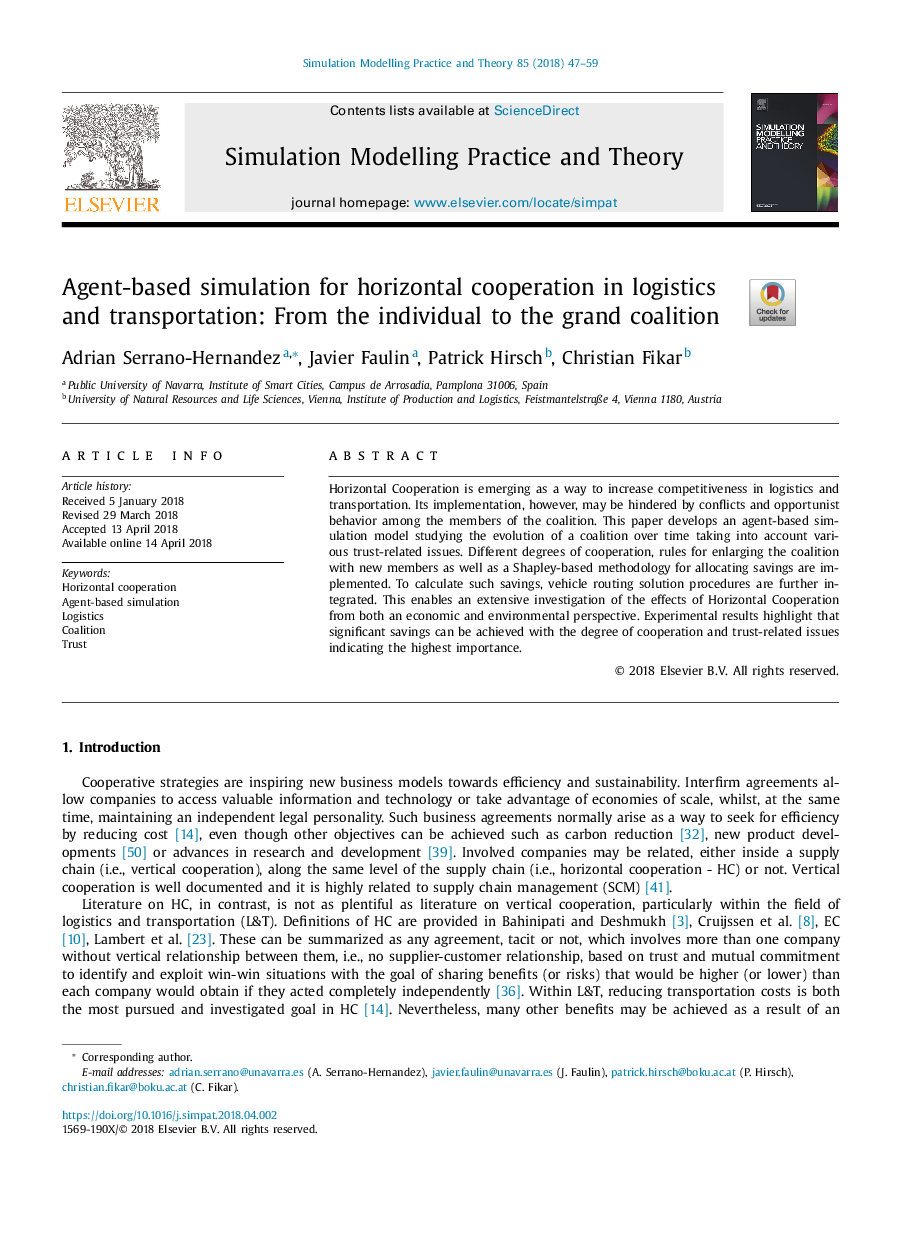| Article ID | Journal | Published Year | Pages | File Type |
|---|---|---|---|---|
| 6902550 | Simulation Modelling Practice and Theory | 2018 | 13 Pages |
Abstract
Horizontal Cooperation is emerging as a way to increase competitiveness in logistics and transportation. Its implementation, however, may be hindered by conflicts and opportunist behavior among the members of the coalition. This paper develops an agent-based simulation model studying the evolution of a coalition over time taking into account various trust-related issues. Different degrees of cooperation, rules for enlarging the coalition with new members as well as a Shapley-based methodology for allocating savings are implemented. To calculate such savings, vehicle routing solution procedures are further integrated. This enables an extensive investigation of the effects of Horizontal Cooperation from both an economic and environmental perspective. Experimental results highlight that significant savings can be achieved with the degree of cooperation and trust-related issues indicating the highest importance.
Related Topics
Physical Sciences and Engineering
Computer Science
Computer Science (General)
Authors
Adrian Serrano-Hernandez, Javier Faulin, Patrick Hirsch, Christian Fikar,
